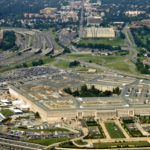
While a federal judge in Georgia halted the Biden administration's vaccine mandate for federal contractors in a decision earlier this month, defense contractors are taking various approaches in response to the ruling and other factors, including the possible drain on profits from releasing workers opposed to the vaccine and the health risks of retaining unvaccinated workers. In suspending mandatory vaccinations this month, Boeing [BA], for example, said that 92 percent of its 125,000 U.S. workers are fully vaccinated or have…













